Rhiannon Giddens, Adia Victoria, reclaim, reframe America's musical past, future at Ryman
- Oops!Something went wrong.Please try again later.
- Oops!Something went wrong.Please try again later.
- Oops!Something went wrong.Please try again later.
Though a modern roots music icon and Legacy of Americana award-winner, Rhiannon Giddens had never solo headlined Nashville's Ryman Auditorium. On Friday night, though, she finally accomplished this feat. She and her band's incredible capability to use a dozen instruments to cycle, with precision, through four centuries of popular American music made her debut headlining set worthwhile.
One in three times she sat down her instrument after playing, she was met with a rapturous standing ovation.
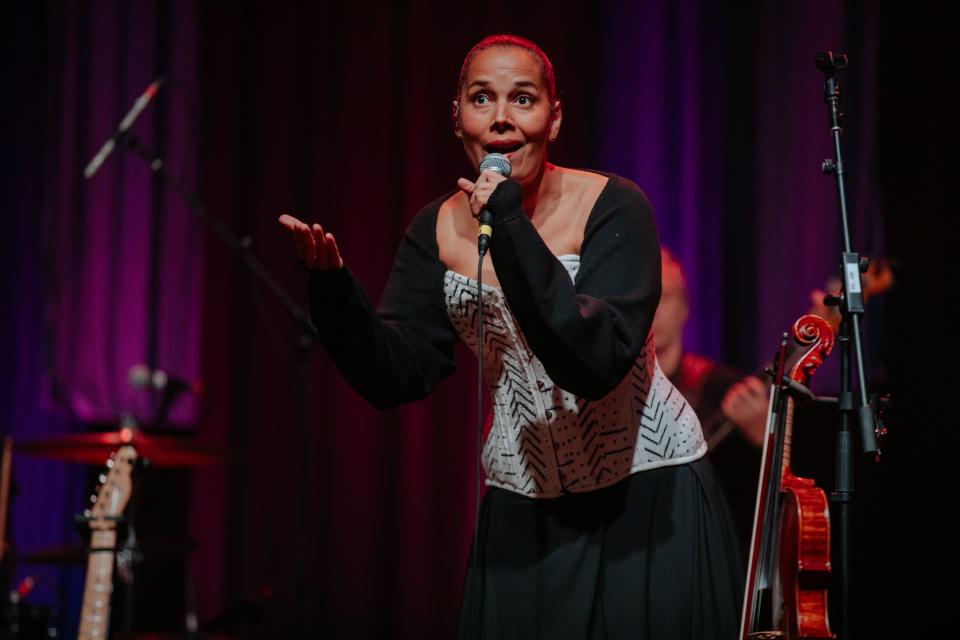
Giddens and her opener, blues player Adia Victoria, are unified by being part of a groundbreaking set of music makers for whom evolving popular music through a post-modern era defined by the democratization of access to instruments and consumption of sounds, our simultaneous national economic depression and recession, plus perceived miscarriages of social justice has caused their mainstream renown.
It's hard work that's seen Giddens reclaim the banjo's African-American roots and pair it with her collegiate, erudite understanding of folk, jazz, old-time music, opera, rock and soul. A similar thing can be said about Victoria's work in reconfirming Black women's root connection to the invention of the blues.
Giddens -- alongside notable co-conspirators Amythyst Kiah, Leyla McCalla and Allison Russell, snatched the banjo back from the heights that white male and female stars have elevated the instrument. In Victoria's case, she decolonized the blues' connection to generational stories of Black devilry at Mississippi highway intersections.
Victoria, in a 2021 interview with CMT, also stated the following:
"Black women are not bottomless bowls of sweat, work, emotional support, and reassurance for white America. As a Black woman, I needed to reclaim my ability to have my prerogative and self-interests while living in a country that can't do right. Basically, if I'm putting on an apron and getting in the kitchen, I'm frying chicken for my damn self."
Sanctified euphoria over defining and embodying the future of life and music via your self-defined prerogative causes an energetic spiritual acceptance.
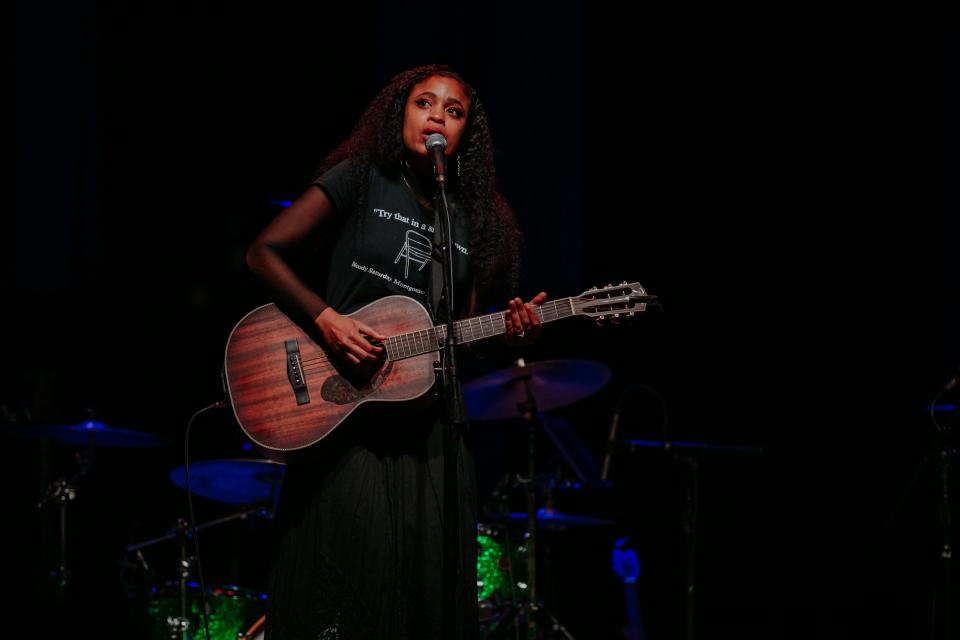
That emerged on Friday evening as everything from a foot-stomping and hand-clapping late-concert party moment wherein a full "old-time" music jam session occurred onstage as Giddens led a quintet including her longtime partner, multi-instrumentalist Francesco Turrisi. Or, that's opener Victoria with a tambourine held aloft, pulling her Seventh-day Adventist roots into the conversation -- then, she stopped.
"Can the Mother Church say amen," she stated.
Victoria's most recent album -- from which she played many mournful blues tunes during her opening set -- was entitled "A Southern Gothic."
The album requires the listener to divorce themselves of preconceptions regarding control, supremacy, and logic borne of antiquated traditions.
Thus, Victoria's gospel sermon moment had a double meaning.
On one level, it's a deft calling of gospel's Black traditions into the larger narrative conversation of the event.
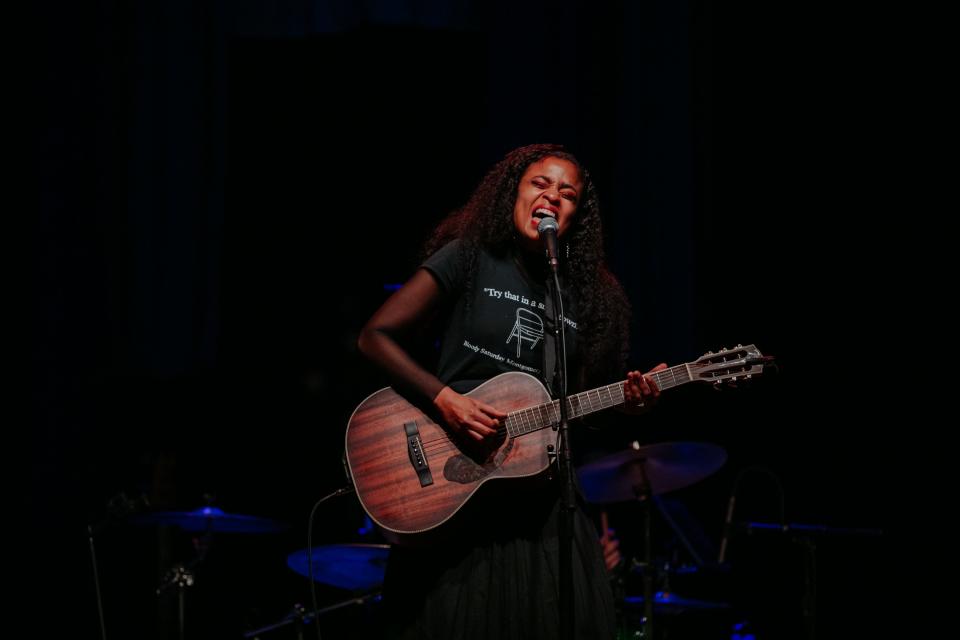
On the other hand, it's a moment that only had a payoff if you stayed around for the night's encore, Victoria joining Giddens for a rousing cover of Sister Rosetta Tharpe's five-decade-old rock n' roll spiritual "Up Above My Head There's Music in the Air."
Only when the dust has settled and what Giddens herself -- after demurring the crowd to "hush" after many standing ovations -- called playing "all of the American music there is" in a night "beyond her wildest dreams" could a woman whose electrified gospel music be lifted into the room via call and response.
The time for work -- for this evening -- was through.
Playing Sister Rosetta Tharpe acknowledges that her two-decade career height from 1938-1958 represents the last time a Black woman had undeniable control -- until Elvis' crossover -- over pop and rock's sociopolitical stranglehold over American popular culture.
Adia Victoria also took a moment during her set to acknowledge that Freddie O'Connell was Nashville's newly-elected progressive-minded mayor.
The duo had succeeded in forwarding the impulse of highlighting their joy in the wake of the sociopolitical reparations their labor is causing.
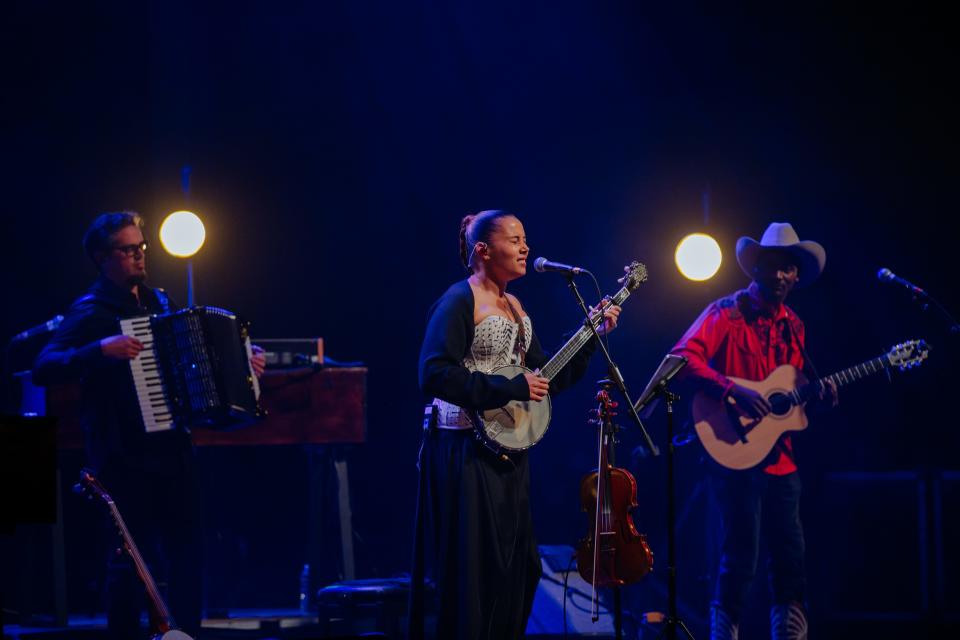
Alongside invoking Tharpe's spirit by saying her name, both Giddens and Victoria "said the names" of women, including Erykah Badu, Aretha Franklin, author Virginia Hamilton (of 1985 African-American children's book "If People Could Fly"), Dolly Parton, Bonnie Raitt and Tina Turner.
Giddens sang not just the caustic traditional country-inspired ballad "If You Don't Know How Sweet It Is" from her new album "You're The One" and cited Parton's undeniable pop cultural influence as a cause for universal celebration.
However, moments of enraptured positivity were met with a peculiar, bittersweet toxicity uniquely borne of American notions like the 700 days that Kalief Browder -- an African American youth from The Bronx, New York, who was held at the Rikers Island jail complex, without trial, between 2010 and 2013 for allegedly stealing a backpack containing valuables.
Giddens mentioned his 2015 death after hanging himself following his release to implore the crowd at the Ryman to support the Innocence Project, a non-profit organization dedicated to investigating and prosecuting claims of actual innocence.
Moreover, Giddens also cited that Sept. 15 was the 60th anniversary of the bombing of Birmingham, Alabama's 16th Street Baptist Church by members of the Ku Klux Klan that killed four girls and injured 22 others.
Digging into her catalog of albums, she dusted off her 2017-released cover of "Birmingham Sunday," a song about the incident that names its victims Addie Mae Collins, Denise McNair, Carole Robertson, and Cynthia Wesley.
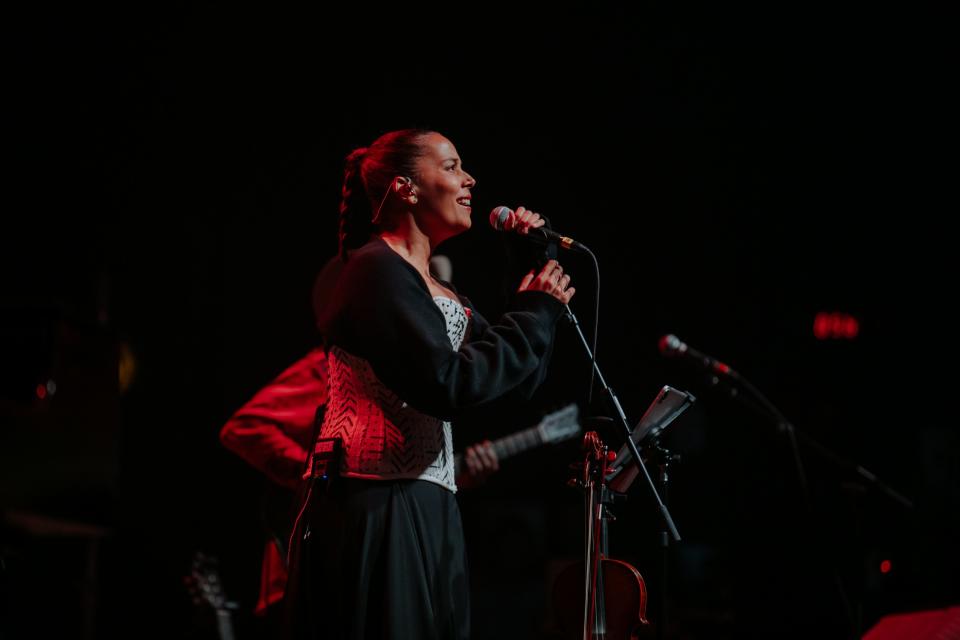
Written by Richard Fariña and performed by Fariña and his sister-in-law Joan Baez, the song's melody is derived from the traditional Scottish ballad "I Once Loved a Lass."
In the hand of Giddens and her band, plus given the arc and scope of her work and the universe since 2017, the song was a moment that felt like Giddens claiming a song for a post-modern and redefined American songbook.
The night's headliner left the crowd with a defining, future-forward notion to consider as the evening closed:
"We can't fix everything, but we can control how kind we are to each other and what we leave behind on this Earth."
This article originally appeared on Nashville Tennessean: Rhiannon Giddens, Adia Victoria, reclaim, reframe America's musical past, future at Ryman

